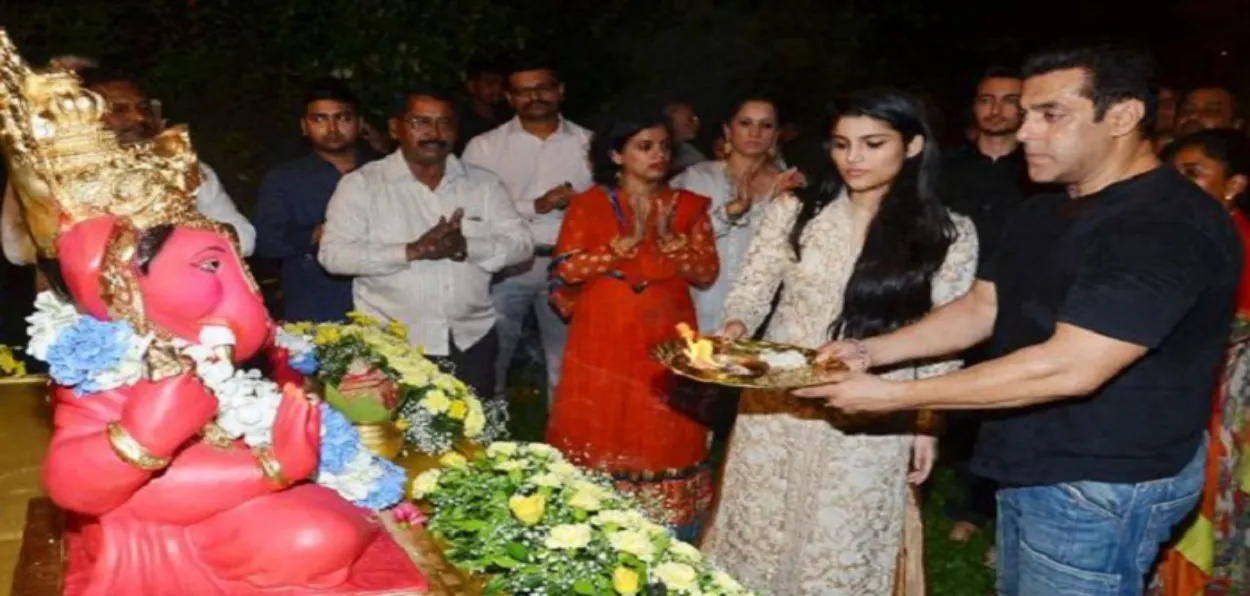
Sayyed Taleef Haider
The tradition of composing poems in praise of Hindu deities in the Urdu language has a rich and ancient history spanning over a thousand years. Throughout India, poets from diverse regions have expressed their devotion to various gods, including both Hindu and Muslim poets. This interfaith literary tradition has celebrated deities such as Krishna, Brahma, Vishnu, Mahesh, Rama, Hanuman, Parvati, Ganga, Shakti, Lakshmi, Saraswati, Durga, and Kali.
In the history of Urdu literature, Nazir Akbarabadi stands out for his poetic compositions dedicated to gods such as Kanhyaji, Mahaduji, Durgaji, and Baldewji. Lord Ganesha also finds mention in Urdu literature, and Nazir Akbarabadi, for instance, began one of his poems with a reference to Lord Ganesh. Here's an excerpt from his poem:
Pehle Naam Ganesh ka Lijiye Sees Naway
Ja se Kaaj Sidh hon Sada Mahurat Lay
(To begin with, you must invoke the blessing og Lord Ganesha; which will help you sail through your task unobstructed)
This illustrates his deep connection with the gods and goddesses of India.
Gulzar Dehlvi, a renowned Urdu poet, metaphorically alludes to Lord Ganesha in one of his “Hamd” dedicated to the praise of God. He writes:
Teri Zaat Zaat-e- Qadeem Hai Teri Zaat Zate Azeem hai
Tu Nadeem Hai tu Naeem haitu Kareem haitu Raheemhai
(You are Greatest and the Most respectful, you are only our Friend, the Rewarder, and the Merciful
All these are the attributes of Allah.
In this, Gulzar Dehlavi further says:
Tu wakeel haitu Khaleel haitu hi Mor haitu hi feel hai
(You are our helper, you are our lover, you are the peacock and you are the elephant)
Here, the reference to "Feel" is to Lord Ganesha, whom the poet describes as a friend and helper of the people.
Similarly, Nadim Jaunpuri wrote:
Ganesh ki shaanhai sub se Nirali
Unhi ka naam le har ek sawali
Jis ne bhi us ko haiPukara
Un Ne bhar di jhli Khali
(Ganesh is unique among all deities; every seeker calls upon you, and whenever someone invokes your name, their tasks are accomplished.)
One noteworthy aspect of Lord Ganesha's mention in Urdu literature is the variety of names by which he is referred to, such as Samukh, Ekadanta, Kapil, Gajakarnak, Lambodar, Vakata, Viganansh, Vinayaka, Gandhikesh, and Gajananda. Ganesha holds a special place as he is invoked before all other gods, believed to bless and ease the way for any endeavour.
While many writers from Maharashtra have incorporated Lord Ganesha into their works, Urdu fiction has also celebrated this deity. For instance, Saadat Hasan Manto's character Sugandhi, in the famous story "Hatak," is a devoted follower of Lord Ganesha, considering Him her greatest guru.
Moreover, the writings of Ali Imam Naqvi, Rajendra Singh Bedi, Ismat Chughtai, Qurratul Ain Haider, and Krishna Chandra also feature references to Lord Ganesha in various contexts.
In Maharashtra, during Ganesh Chaturthi celebrations, numerous poets recite poems and Hamd in praise of Lord Ganesha. The occasion serves as a time to commemorate the story of Lord Ganesha's courage in protecting his mother.
ALSO READ: UNESCO World Heritage tag for Tagore-founded Santiniketan
Bollywood has also contributed to keeping the spirit of Lord Ganesha alive with songs that celebrate Him. Artists like Hritik Roshan, Salman Khan, Varun Dhawan, Prabhu Deva, Akshay Kumar, and Govinda have captivated the hearts of Indians with their portrayals of Lord Ganesha in these songs. It's worth noting that the writers of these songs come from diverse backgrounds, including both Hindus and Muslims, emphasizing the universal appeal of Lord Ganesha's significance.
